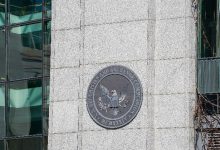DOJ ‘Overreaching’ in Trying to Block Sam Bankman-Fried’s Proposed Witnesses, Defense Says

The U.S. Department of Justice is continuing its push to prevent FTX founder Sam Bankman-Fried from having a fair trial, defense attorneys charged in a filing pushing back against prosecutors’ motion to disqualify proposed expert witness testimony.
Prosecutors moved last month to block all seven of Bankman-Fried’s proposed expert third-party witnesses from testifying, saying they may not have had relevant experience or that their proposed testimony wouldn’t be applicable to the actual trial. Monday night’s filing from the defense argued against these planned exclusions, saying the DOJ’s arguments don’t hold water.
“The Government’s Motions to Exclude continue the theme illustrated by its motions in limine, namely, overreaching with regard to the rules of evidence and pretrial motions to thwart Mr. Bankman-Fried’s fundamental right to present a defense or even to introduce evidence that might be inconsistent with the Government’s theories,” the defense said.
Some of the proposed witnesses, like consultant Thomas Bishop and data analytics and forensics expert Brian Kim, are meant to rebut DOJ testimony “if made relevant by the government’s case,” the filing said.
Other proposed witnesses, like Capital University Law School Professor Bradley Smith – a former Federal Election Commissioner – can provide context for issues like how political contributions are normally made, the filing said.
Another witness would help the jury understand FTX’s terms of service, the filing claimed.
Joseph Pimbley, another consultant, can help explain FTX’s software, the filing said. While the DOJ intends to call former FTX executives Gary Wang and Nishad Singh to testify about this, their “credibility” is questionable due to their being cooperating witnesses for the prosecution, the filing said.
Prosecutors, for their part, also pushed back against the defense team’s motion to block University of Notre Dame Professor Peter Easton, saying the defense’s motion mischaracterized what Easton would say.
“Professor Easton’s testimony about customer fiat deposits will be descriptive, not prescriptive,” the filing said. “He will describe, for instance, whether customer fiat deposits were kept in segregated bank accounts; not whether it was improper to commingle customers’ funds. He will describe whether balances in bank accounts receiving customer funds matched the balances in FTX’s transaction database and ledger; not whether it was improper if they did not match.”
Easton’s testimony will be based on “rigorous financial accounting and reliable methodologies,” the DOJ said, including tracing funds between bank accounts.




 Bitcoin
Bitcoin  Ethereum
Ethereum  Tether
Tether  USDC
USDC  Dogecoin
Dogecoin  TRON
TRON  Cardano
Cardano  Bitcoin Cash
Bitcoin Cash  Chainlink
Chainlink  LEO Token
LEO Token  Litecoin
Litecoin  Dai
Dai  Monero
Monero  Stellar
Stellar  Ethereum Classic
Ethereum Classic  Stacks
Stacks  OKB
OKB  Cronos
Cronos  Hedera
Hedera  Cosmos Hub
Cosmos Hub  KuCoin
KuCoin  Gate
Gate  Theta Network
Theta Network  Maker
Maker  Algorand
Algorand  Polygon
Polygon  Tether Gold
Tether Gold  NEO
NEO  EOS
EOS  Tezos
Tezos  Zcash
Zcash  TrueUSD
TrueUSD  Synthetix Network
Synthetix Network  Bitcoin Gold
Bitcoin Gold  IOTA
IOTA  Holo
Holo  Dash
Dash  Zilliqa
Zilliqa  Siacoin
Siacoin  0x Protocol
0x Protocol  Ravencoin
Ravencoin  Basic Attention
Basic Attention  Enjin Coin
Enjin Coin  Qtum
Qtum  Decred
Decred  Ontology
Ontology  NEM
NEM  Lisk
Lisk  Pax Dollar
Pax Dollar  Nano
Nano  Numeraire
Numeraire  Waves
Waves  Status
Status  DigiByte
DigiByte  Huobi
Huobi  Hive
Hive  Steem
Steem  BUSD
BUSD  Ren
Ren  OMG Network
OMG Network  Bitcoin Diamond
Bitcoin Diamond  Bytom
Bytom  Kyber Network Crystal Legacy
Kyber Network Crystal Legacy  HUSD
HUSD